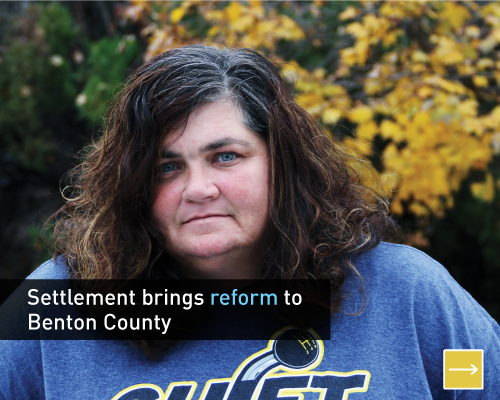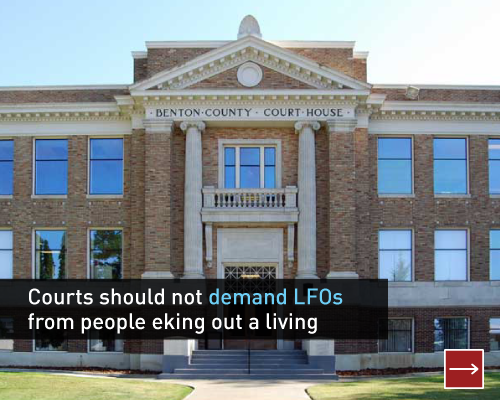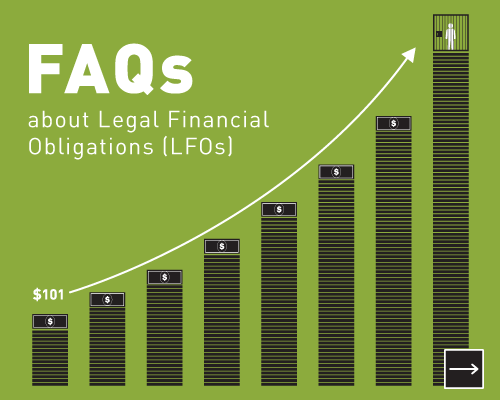Debtor's Prison
It’s like something out of Dickens: Poor people being jailed for failing to pay debts they can never hope to afford. Court-ordered debts impose unfair burdens on poor people in Washington. The ACLU of Washington is exposing this counterproductive system and calling for reform.









